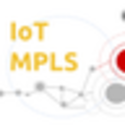-
About
- About Listly
- Community & Support
- Howto
- Chrome Extension
- Bookmarklet
- WordPress Plugin
- Listly Premium
- Privacy
- Terms
- DMCA Copyright
- © 2010-2025 Boomy Labs


IBM Research - Zurich, Industry & Cloud Solutions, Industry Solutions, Cross-Industry: LRSC

LTE (both radio and core network evolution) is now on the market. Release 8 was frozen in December 2008 and this has been the basis for the first wave of LTE equipment. LTE specifications are very stable, with the added benefit of enhancements having been introduced in all subsequent 3GPP Releases.

Wi-Fi Alliance® is the worldwide network of companies that brings you Wi-Fi®.
In 1999, several visionary companies came together to form a global non-profit association with the goal of driving the best user experience with a new wireless networking technology – regardless of brand.

Official Bluetooth technology website. See the coolest new Bluetooth products & innovations, market trends, technology updates, and Bluetooth news.

ZigBee is the only open, global wireless standard to provide the foundation for the Internet of Things by enabling simple and smart objects to work together, improving comfort and efficiency in everyday life.

The EnOcean technology is an energy harvesting wireless technology used primarily in building automation systems; but is also applied to other applications in industry, transportation, logistics and smart homes. Modules based on EnOcean technology combine micro energy converters with ultra low power electronics and enable wireless communications between batteryless wireless sensors, switches, controllers and gateways. In March 2012, the EnOcean wireless standard was ratified as the international standard ISO/IEC 14543-3-10.

GSM (Global System for Mobile communications) is an open, digital cellular technology used for transmitting mobile voice and data services.

GLOBAL POSITIONING SYSTEMS WING (GPSW) SYSTEMS ENGINEERING & INTEGRATION
INTERFACE SPECIFICATION IS-GPS-800

GLOBAL CELLULAR CONNECTIVITY FOR THE INTERNET OF THINGS - Sigfox has an extensive network of base stations all over Europe, which run on a narrow-band (868 / 902) Mhz spectrum. This is a low power alternative to a cellular network. which allows you to send and receive data, and create a low-power wide area network (LPWAN).

POCSAG is an asynchronous protocol used to transmit data to pagers. The name comes from Post Office Code Standardization Advisory Group, this being the British Post Office which used to run nearly all telecommunications in Britain before privatization. The main alternative to POCSAG is FLEX, which uses higher speeds and a four level modulation method.

M-Bus Usergroup Information. The Meter-Bus is a low cost bus system for remote reading and powering utility meters in Europe.

DigiMesh is a proprietary peer-to-peer networking topology for use in wireless end-point connectivity solutions. The nature of its peer-to-peer architecture allows DigiMesh to be both easy to use and equipped with advanced networking features, including support for sleeping routers and dense mesh networks.

ISA100.11a is an open-standard wireless networking technology developed by the ISA100 Committee of the ISA. The standard was the first robust standard in the industrial automation marketplace. The ISA100 committee was formed in 2005 to establish standards that will define procedures for implementing wireless systems in the automation and control environment, with a primary focus on the field level.

NFC is a set of MAC and PHY protocols encompassing a 1-inch range wireless communication standard which is powered by induction.

IEEE 802.15.4 is a standard which specifies the physical layer and media access control for low-rate wireless personal area networks (LR-WPANs). It is maintained by the IEEE 802.15 working group, which has defined it in 2003.

ANT is a Wireless Personal Network protocol, by Dynastream Innovations Inc., with small size, reasonable cost and Very Low Power requirements.

The Board of the Alliance organized a 2 days work meeting in Stuttgart on December 1st and 2nd to prepare the future of the Alliance. In parallel the PAG worked on the version 1.0 of the specification which should be submitted for a member approval vote in the first quarter of 2015.

Weightless SIG for M2M and Internet of Things IOT

WiMAX ( Worldwide Interoperability for Microwave Access) is a wireless communications standard designed to provide 30 to 40 megabit-per-second data rates, with the 2011 update providing up to 1 Gbit/s for fixed stations. The name "WiMAX" was created by the WiMAX Forum, which was formed in June 2001 to promote conformity and interoperability of the standard.

When designing a wireless product selecting the frequency is one of the fundamental decisions that must be performed early. Choosing a frequency gets really complicated if you plan to sell your product in multiple countries, and especially if sold worldwide. Multiple radio frequencies are allowed around the world, and each country has its own set of rules.

X10 is a protocol for communication among electronic devices used for home automation ( domotics). It primarily uses power line wiring for signaling and control, where the signals involve brief radio frequency bursts representing digital information. A wireless radio based protocol transport is also defined.


